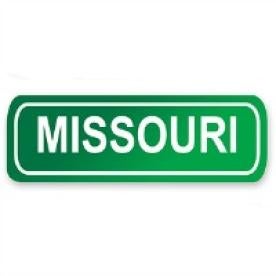A unanimous Missouri Supreme Court has upheld St. Louis City’s local minimum wage ordinance, reversing a trial court judgment that had enjoined and invalidated the ordinance in 2015. Cooperative Home Care, Inc. v. City of St. Louis, Missouri, No. SC95401 (Mo. Feb. 28, 2017).
While the Ordinance had a series of graduated minimum wage increases beginning in 2015, the high court decision means the January 1, 2017, minimum wage rate is the currently effective rate. Therefore, the current minimum wage in the City of St. Louis is $10.00 per hour. Beginning January 1, 2018, the minimum will increase to $11.00 per hour. Under Missouri’s minimum wage law, the state minimum is $7.70 per hour.
Background
On August 28, 2015, the City enacted Ordinance 70078 of its revised City Code to establish a citywide local minimum wage.
The Ordinance provides a series of four graduated increases to the minimum wage for employees working within the geographic boundaries of the City beginning October 15, 2015 ($8.25 per hour) and ending on January 1, 2018 ($11.00 per hour). Beginning January 1, 2021, the City minimum wage will be increased annually on a percentage basis to reflect the rate of inflation.
On September 14, 2015, the plaintiffs filed a seven-count petition against the City (and certain related officials). The petition sought a declaratory judgment that Ordinance 70078 is invalid and asked for injunctive relief to prevent the City from enforcing the Ordinance. On October 14, 2015, the day before the first increase of the City’s minimum wage was set to become effective, the trial court entered an order invalidating the Ordinance. It found the Ordinance was preempted because a separate state statute prohibited the adoption of local ordinances supplementing any state law on a subject (in this case, Missouri’s minimum wage law), including minimum wage ordinances.
Ordinance Upheld
The Missouri Supreme Court disagreed with the reasoning of the trial court.
First, it rejected the plaintiffs’ argument that the Missouri minimum wage law is an affirmative authorization to pay no more than the state minimum wage. “To the contrary,” the Court said, “it simply sets a floor below which an employee cannot be paid.”
Second, the Court noted that concluding the state minimum wage law was intended to protect employers from being required to pay a higher wage is at odds with the statute’s recognized purpose, which was to ameliorate the unequal bargaining power between employers and employees.
Finally, the Court concluded the Ordinance was unaffected by a later-enacted state law (House Bill 722; codified at section 285.055) providing that no political subdivision may require employers to offer an employee benefits that exceed the requirements of federal or state laws, rules, or regulations. By its terms, HB 722 provides that it would not preempt any state or local minimum wage ordinance requirements in effect on August 28, 2015. Ordinance 70078 was in effect on August 28, 2015. Therefore, the Missouri Supreme Court held the Ordinance is excepted from HB 722.
Next Steps
The Missouri Supreme Court’s decision did not provide any guidance to City employers on when they must implement the increased minimum wage, along with other requirements contained in Ordinance 70078. On the same day as the decision, City Mayor Francis Slay said in a press release, “It is fair to give businesses a reasonable grace period to adjust to the new minimum wage rate. We will spend the coming week talking to local business leaders to prepare to implement the increase.”
While it remains to be seen exactly when employers will be required by the City to comply with the Ordinance, employers should take immediate steps to ensure the increase can be implemented to affected employees as soon as possible in order to avoid any risk of litigation by private attorneys. Accordingly, employers with employees in the City of St. Louis should comply with the $10.00 rate as soon as possible. They also may want to consider making that rate retroactive to February 28, 2017, if for no other reason than to avoid any allegations of non-compliance.
Other requirements under the Ordinance include one that requires employers to update their posters advising employees of the current minimum wage in the City.
Further, Ordinance 70078 provides that failure to comply will be punishable by a sentence of not more than 90 days in jail or by a fine of not more than $500 per violation (each day the employer pays the employee a wage below the minimum wage is a separate violation), or both. Although Ordinance 70078 does not provide a private cause of action to employees, an employer also may be required to compensate the victim, including paying restitution and unpaid back wages plus interest.
Finally, repeated violations or intentional violations of the Ordinance may result in the revocation of the employer’s business license and occupancy permit issued by the City.





 i
i


